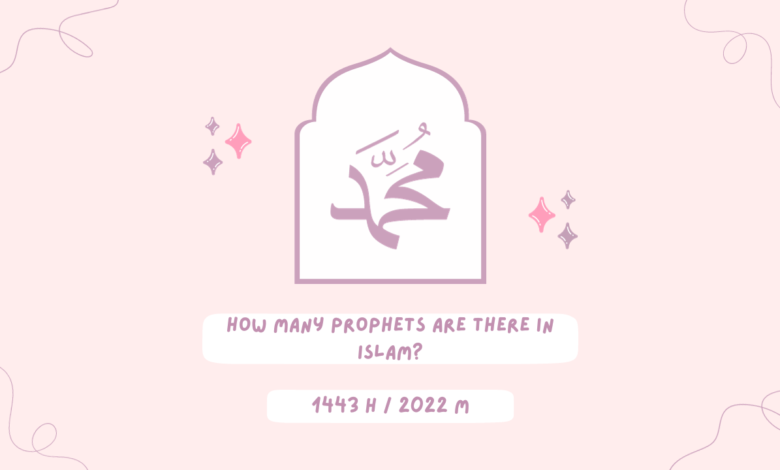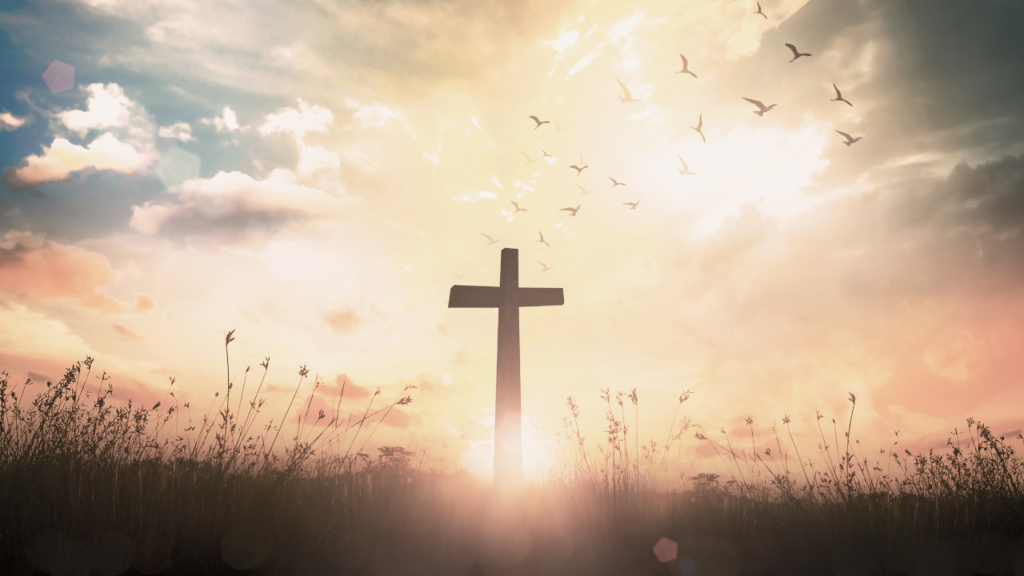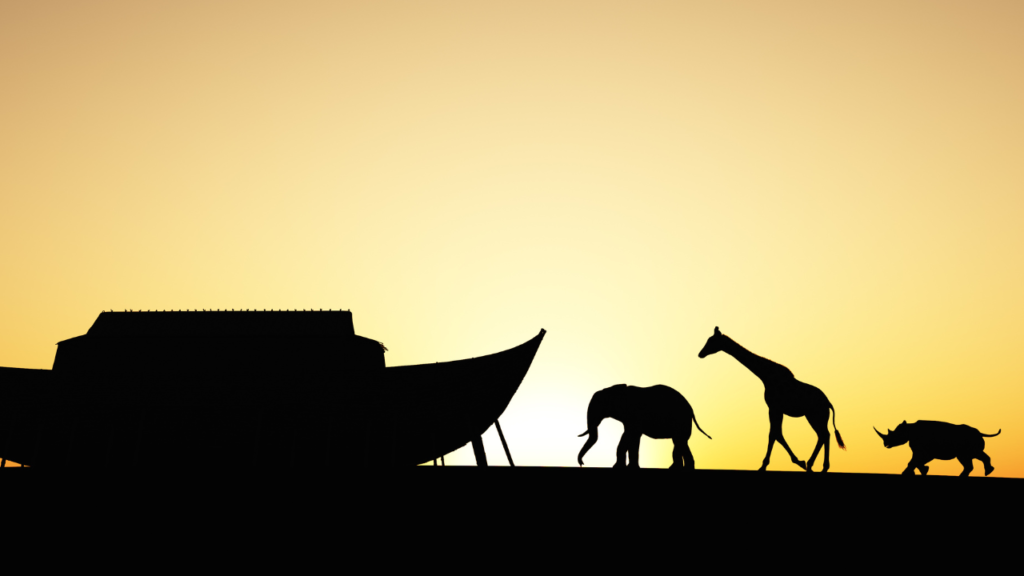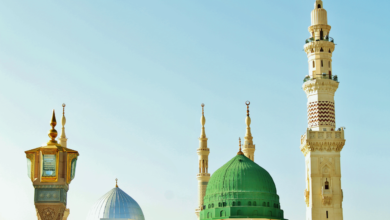How many Prophets are there in Islam?
"Unveiling the Prophetic Legacy: Counting the Messengers in Islam"

How many Prophets are there in Islam?
Islam recognizes the prophethood of a large number of individuals. The exact count may vary depending on Islamic traditions, but it is generally believed to be 124,000 or more.

Introduction
Islam is one of the world’s major religions, and its followers believe in a long line of prophets who have been chosen by God to convey His message to humanity. These prophets are considered a vital part of Islamic belief and play a significant role in shaping the religion’s teachings and values. But just how many prophets are there in Islam? This question is often asked by both Muslims and non-Muslims seeking a better understanding of Islamic history and theology. In this article, we will explore the concept of prophethood in Islam and provide insight into the number of prophets mentioned in Islamic tradition.
Prophets in Islam
In Islamic belief, a prophet (Nabi in Arabic) is a person chosen by Allah (God) to receive divine revelations and guidance for the benefit of humanity. Prophets are considered messengers of God, and their primary role is to convey His message, which includes moral, ethical, and spiritual guidance. While there is no precise count of how many prophets have been sent throughout history, Islamic tradition suggests that thousands of prophets were sent to different communities and nations over time.
Also Check
- What year was Islam founded?
- Is Music Forbidden In Islam?
- Rights of a Muslim Wife upon Her Husband
- What year was Islam founded?
- Charity As Taught By Quran And Prophet Muhammad (PBUH)
- Can Non Muslims go to Mecca?
- Does Islam believe in Noah’s ark?
- How did Jesus die in Islam?
The Quranic Perspective
The Quran, Islam’s holy book, mentions the names of some prophets and their stories. According to the Quran, Allah sent prophets to every nation and community to guide them on the right path. The Quran explicitly mentions the names of 25 prophets, including well-known figures like Adam, Noah, Abraham, Moses, and Jesus (known as Isa in Islam), among others. These prophets are often referred to as the “Messengers of Strong Will” in Islamic tradition because they received specific divine revelations known as “Books” (e.g., the Torah for Moses and the Bible for Jesus).
It’s important to note that while these 25 prophets are explicitly mentioned in the Quran, Islamic tradition suggests that there were many more prophets sent to various regions and tribes whose names are not mentioned in the Quranic text. Therefore, the total number of prophets in Islam is believed to be far greater than those explicitly named in the Quran.
Prophet Muhammad
In Islam, the final and most significant prophet is Muhammad (peace be upon him). He is considered the Seal of the Prophets, which means that he is the last in the line of prophets sent by Allah to guide humanity. Prophet Muhammad received the final revelation, the Quran, from Allah through the angel Gabriel over a period of 23 years. His mission was to deliver this message to all of humanity and complete the guidance provided by earlier prophets.
Conclusion
In Islam, the exact number of prophets sent by Allah is not known, but it is believed to be numerous, with the Quran explicitly mentioning 25 of them. These prophets played essential roles in delivering God’s message and guiding their respective communities. Prophet Muhammad is considered the final prophet and the Seal of the Prophets, bringing the last and most comprehensive revelation to humanity. Understanding the concept of prophethood in Islam is essential for appreciating the religion’s rich history and the role of divine guidance in shaping the lives of Muslims around the world.

FAQs about How Many Prophets Are There in Islam?
How many Prophets are recognized in Islam?
Islam recognizes the prophethood of a large number of individuals. The exact count may vary depending on Islamic traditions, but it is generally believed to be 124,000 or more.
How many Prophets are mentioned in the Quran?
The Quran mentions the names of 25 Prophets, including well-known figures like Adam, Noah, Abraham, Moses, and Muhammad (peace be upon them). However, it is believed that many more Prophets existed throughout history.
Who is the final Prophet in Islam?
The final Prophet in Islam is Prophet Muhammad (peace be upon him). He is considered the Seal of the Prophets, and his message is believed to be the final revelation from God.
Are all Prophets equal in Islam?
While all Prophets are revered in Islam as chosen messengers of God, some Prophets hold a higher status in the hierarchy of Prophethood. The five greatest Prophets are known as Ulul Azm Prophets and include Noah, Abraham, Moses, Jesus, and Muhammad (peace be upon them).
Why were Prophets sent by God in Islam?
Prophets were sent by God to guide humanity, deliver His message, and lead people to the right path. They were chosen to bring divine revelations and to serve as examples of righteous living.
Do Muslims believe in all the Prophets mentioned in other religious texts?
Muslims believe in many of the Prophets mentioned in other religious texts, such as the Bible. However, they may have different perspectives on the roles and stories of these Prophets compared to other faiths.
Are there female Prophets in Islam?
While there is no mention of female Prophets in Islamic scripture, there were righteous and pious women who played significant roles in the history of Islam. They are highly regarded but not considered Prophets in the traditional sense.
Can Muslims choose to follow the teachings of any Prophet they prefer?
In Islam, it is essential to follow the teachings and guidance of the last Prophet, Muhammad (peace be upon him), as his message abrogates previous revelations. However, Muslims are expected to respect and honor all Prophets.
Are there any Prophets expected to come in the future according to Islamic belief?
Muslims believe that Prophet Muhammad (peace be upon him) is the final Prophet, and there will be no more Prophets after him. They await the return of Jesus (peace be upon him) in the future, but he is not considered a new Prophet.
How do Muslims honor and commemorate the Prophets in Islam?
Muslims honor Prophets by learning about their lives, following their teachings, and celebrating special occasions related to their lives, such as the birthday of Prophet Muhammad (peace be upon him). They also mention “peace be upon him” after mentioning any Prophet’s name as a sign of respect and reverence.






